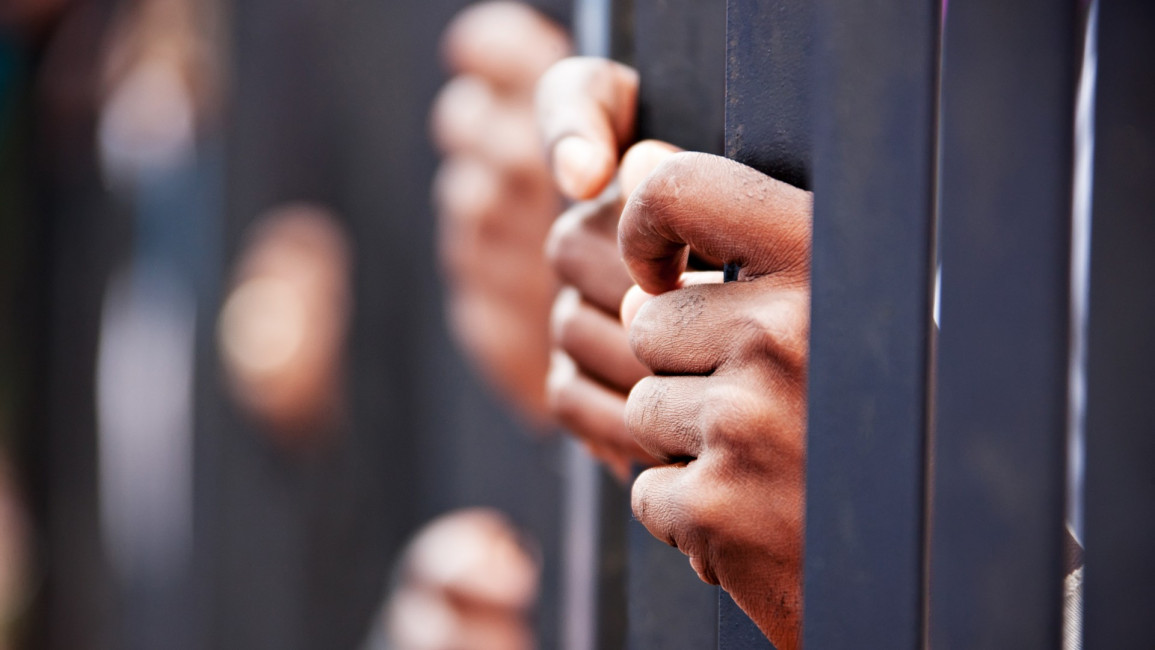Iran aired 355 forced confessions between 2009-2019: report
Iran must end the "forced confessions" of prisoners broadcast on state-owned television, two rights groups said Thursday, arguing it amounted to torture and the perpetrators should risk legal consequences abroad.
The Paris-based International Federation for Human Rights and its member organisation Justice for Iran (JFI), a London-based judicial accountability group, said their analysis showed that between 2009 and 2019, Iranian state media broadcast forced confessions from least 355 individuals.
It had also broadcast defamatory content against at least 505 individuals, they added, destroying their credibility as a legitimate news organisation.
"The use of forced confessions broadcast by state-owned media has been systematically used by the Iranian authorities to repress dissent for decades," said FIDH Secretary-General Adilur Rahman Khan.
"It's time for the international community to press Iran to end this practice, which is the source of many grave human rights violations," he added.
Their report said that forced confessions have been "systematically broadcast" by Iranian state-owned media "to instill fear and repress dissent".
|
||
"Victims revealed that not only were they subjected to torture and ill-treatment to force them to confess -- often to false statements -- in front of the camera, but that furthermore, the broadcasting of these confessions caused enormous pain and suffering," the two organisations said.
The report alleged that methods to force the confessions included "physical torture" such as flogging, hanging by the hands and electrocution.
But they said it also "psychological torture" such as long-term solitary confinement, mock executions, rape threats and deliberate exposure to poor prison conditions.
'Means of mass suppression'
The targets of the broadcasts included human rights defenders, journalists, ethnic minority activists, political dissidents and dual nationals.
In the "forced confession", a convict or suspect is put in front of the camera and confesses to the charges.
Another tactic used by Iranian TV broadcasts programmes is to make sensational allegations about detained suspects, which the rights groups deem defamatory.
The report accused state broadcaster Islamic Republic of Iran Broadcasting (IRIB) of being "actively involved in the systematic production and broadcast of forced confessions" as well as the theft of private data and the publication of defamatory content.
"IRIB has long lost its function as a media organisation and has become a means of mass suppression," the report said.
The report singled out IRIB's international channel Press-TV -- which broadcasts in French and English -- as "the producer and broadcaster of the largest number of forced confessions and defamatory programmes against Iranian activists and civil society".
The JFI has over the last years recorded the broadcast of at least 70 Iranian detainees' forced confessions by Press TV, it said.
JFI Co-Director Mohammad Nayyeri called on the European Union to suspend the entry of IRIB-affiliated officials and reporters into Europe as well as their operations until the practice is stopped.
"Iran has long escaped responsibility for coercing forced confessions," he said.
"While Iran's state-run television is constantly airing programs that are the product of torture and intimidation, IRIB reporters freely travel and operate in Europe without any consequences," he said.
The FIDH and JFI argued the international community should recognise the broadcast of forced confessions could constitute a form or torture and urged foreign states to adopt laws to prosecute those responsible, under the principle of universal jurisdiction.
Follow us on Facebook, Twitter and Instagram to stay connected



